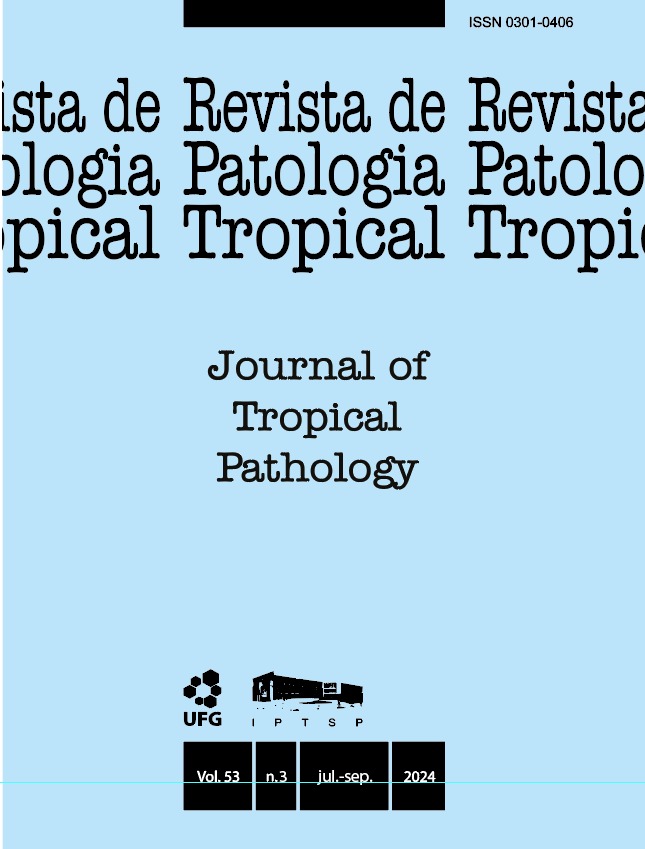First report of Dicrocoelium sp. In hoary fox (Lycalopex vetulus lund 1842) (carnivora: canidae) feces
DOI:
https://doi.org/10.5216/rpt.v53i3.80008Resumo
The hoary fox (Pseudalopex vetulus), endemic to Brazil's Cerrado region, is a wild canid species facing ecological pressures from urbanization and habitat fragmentation. These pressures increase the risk of pathogen transmission between wild and domestic animals, particularly in rural and peri-urban areas. This study reports the first instance of Dicrocoelium sp. and Hepatozoon spp. infections in a wild female hoary fox in Southeast Brazil. The fox, presented with neurological disorders, dehydration, and poor nutritional condition, was hospitalized and subjected to a series of parasitological and clinical tests. Blood smears and fecal examinations revealed the presence of Hepatozoon sp. gametocytes and a significant number of Dicrocoelium eggs. The fox received treatment with albendazole, enrofloxacin, and N-acetylcysteine, showing progressive improvement before being reintroduced to its habitat. This study highlights the significance of parasitic infections in wild canids, emphasizing the need for further research on the ecological and health impacts of such infections. It also underscores the importance of comprehensive fecal and hematological examinations in the clinical assessment of wild fauna and raises awareness about the potential of wild canids as reservoirs for zoonotic parasites.
KEY WORDS: Zoonosis; one health; canids.
Downloads
Downloads
Publicado
Como Citar
Edição
Seção
Licença
The manuscript submission must be accompanied by a letter signed by all authors stating their full name and email address, confirming that the manuscript or part of it has not been published or is under consideration for publication elsewhere, and agreeing to transfer copyright in all media and formats for Journal of Tropical Pathology.

